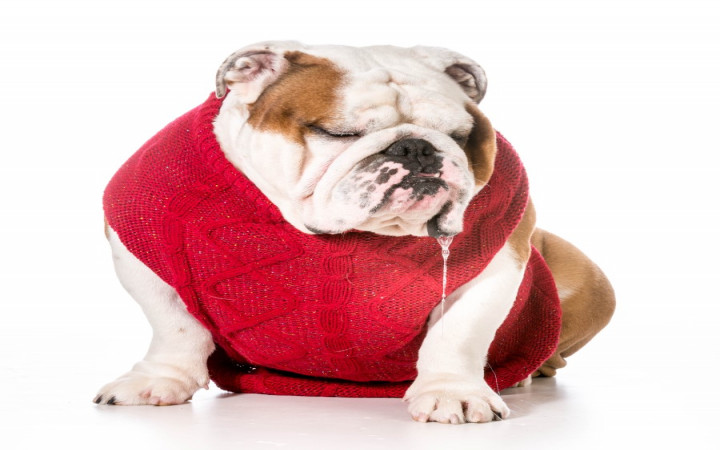Who is man's best friend? The dog, of course! Whether it's fetching your slippers or eating your homework, the humble dog has stood by man's side for hundreds of years as a faithful and loyal companion.
When you come home from a long day at school, there's nothing quite like being greeted by the wagging tail and smiling face of your favorite canine compatriot. Many kids know the feeling of an enthusiastic doggy greeting. It can seem like your pup thought you've been gone for days, weeks, or months rather than just a few hours.
If you kneel down to your dog's level, you're likely to be slathered with doggy kisses in the form of vigorous licks all over your face. Of course, you also run the danger of being covered in a substance that can be less than pleasing. What are we talking about? Dog drool, of course!
Drool, of course, is simply saliva, which you might otherwise know as spit. Dogs have four pairs of salivary glands that drain into the mouth. Much like the saliva that your own mouth produces, a dog's saliva helps it to swallow food and aids in digestion.
When saliva spills out of the mouth of a dog, we say that the dog is drooling. A bit of drooling is normal in all dogs, especially those breeds that have loose, droopy lips. Some breeds known for drooling are bulldogs, mastiffs, St. Bernards, bloodhounds, and Bassett hounds.
When a dog anticipates a treat, such as a snack, the salivary glands kick in and start producing more saliva. As the dog patiently waits for a treat, it's completely normal for a bit of saliva to escape the mouth. Such drooling is common and not a cause for concern.
Other dogs, however, might suffer from excessive drooling. Veterinarians call this condition hypersalivation or ptyalism. Although hypersalivation can be triggered by the anticipation of food treats, it can also be triggered by psychological events, like fear and anxiety.
Hypersalivation can also be caused by a wide variety of physical causes. Some common examples include tooth decay, rabies, distemper, heat stroke, motion sickness, and cysts, infections, and tumors in the salivary glands.
If you see your dog drooling when it's excited or close to dinner time, there's usually no need to worry. If, however, you notice excessive drooling that occurs at odd times and doesn't appear to be related to anything else going on, you should probably schedule an appointment with a veterinarian.
Depending upon what may be causing hypersalivation, there will likely be a variety of treatments that can be tried. Your veterinarian may recommend medicine or dietary supplements. More serious cases may require other procedures.




